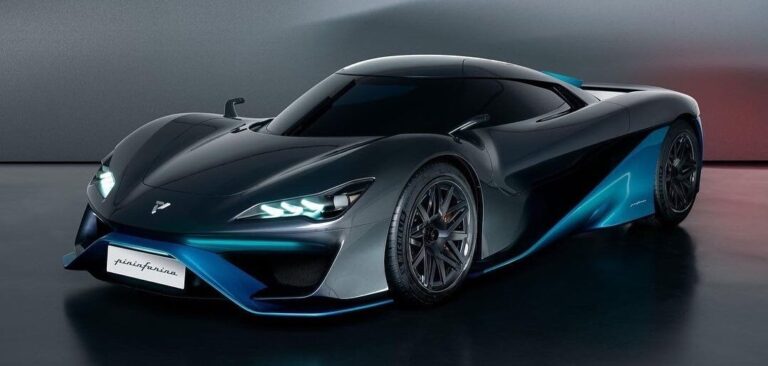UK-based cleantech engineering firm Viritech has debuted what it has described as “revolutionary hydrogen powertrain technology” in the form of the Apricale, a hydrogen FCEV that achieves weight parity with petrol-engined competitors, at the Goodwood Festival of Speed.
The specs of the Apricale speak for themselves: 800kW of power from two motors with a kerb weight of just 1,000kg yet a projected range of 350 miles. The result, its makers hope, is a car that combines the agility of a true drivers’ car, the punch of a hypercar, with zero emissions and without the weight penalty of a BEV powertrain. Though the car is set to be produced and sold to customers, it is also intended as a technology demonstrator to showcase Viritech’s lightweight fuel-cell and hydrogen storage approach.
Matt Faulks, former F1 engineer and Viritech’s CTO, explained the thinking behind the concept, “Hydrogen fuel cells have, until now, been used as range extenders for powertrains with batteries at their heart. We’ve essentially turned that approach on its head, developing a powertrain around multi-hundred-kilowatt fuel cell system supported by a lightweight but highly efficient battery. This delivers hypercar performance for Apricale, but at less than half the weight of typical BEV hypercars. Not only does this reduction in weight transform Apricale’s driving dynamics, but our reduced reliance on batteries means less demand on rare earth minerals.”
The car’s multi-hundred-kilowatt fuel cells are combined with high power lithium-ion cells developed by technical partner AMTE Power, with the energy flow between the fuel cell, batteries and motors, under both acceleration and braking, controlled by Viritech’s intelligent energy management system, Tri-Volt. While the fuel cells provide the main motive power for the Apricale, the battery provides additional power during acceleration, as well as a storage for regenerative braking energy.
The Tri-Volt energy management system and Viritech’s power electronics enable a continuously variable mix of energy from both the fuel cells and the batteries. In addition, the high C-rate of the batteries enables the regenerative braking system to recover considerably more energy under braking than a traditional battery electric vehicle.
FCEVs to date feature very low efficiency storage tanks (in terms of weight). To withstand 700bar storage pressure, most tanks have a weight efficiency of around 5% (5kg of hydrogen per 100kg of tank mass). Viritech has developed a lightweight composite tank design, using a graphene enhanced resin system dubbed Graph-Pro, which can be used as structural chassis members, significantly reducing overall vehicle mass.
According to Viritech, the key technologies displayed in the Apricale, including the drivetrain, the Tri-Volt EMS and the Graph-Pro structural storage vessels, have already been validated in two mule vehicles. Viritech says that its XP1 will provide the final sign-off process for the powertrain over 100,000km of running, with this testing overlapping with a production prototype, intended to validate all aspects of Apricale during 2023. The company hopes to commence customer deliveries in early 2024.
“Apricale has enabled us to completely reassess the benefits that different energy vectors offer. Until now, engineering choices have been finite and compromised, but adding hydrogen into the mix offers a whole new array of capabilities that we have aimed to optimize with a new approach to FCEV,” Faulks said. “Apricale is going to be spectacularly exciting for its owners and we truly hope marks a new chapter in powertrain technology.”


